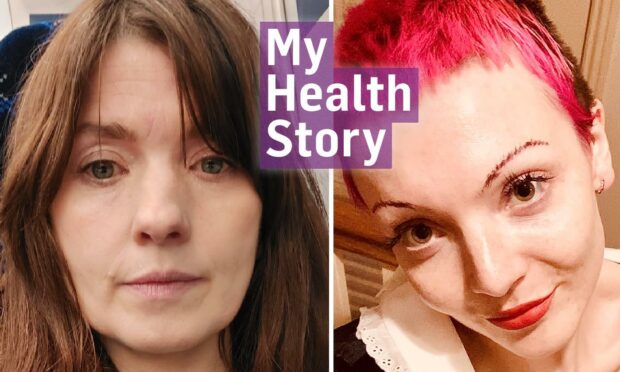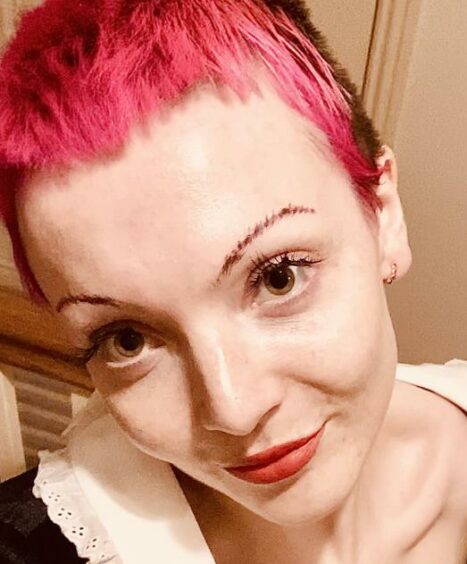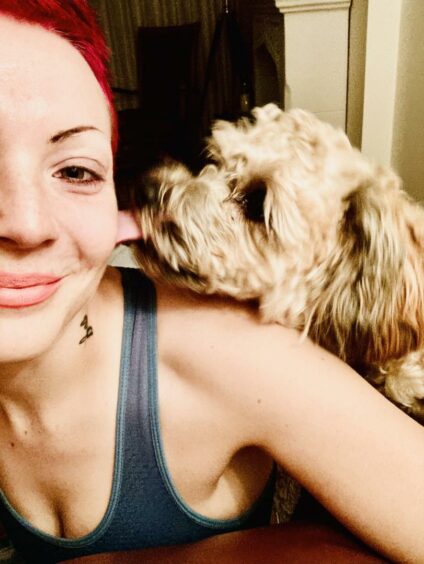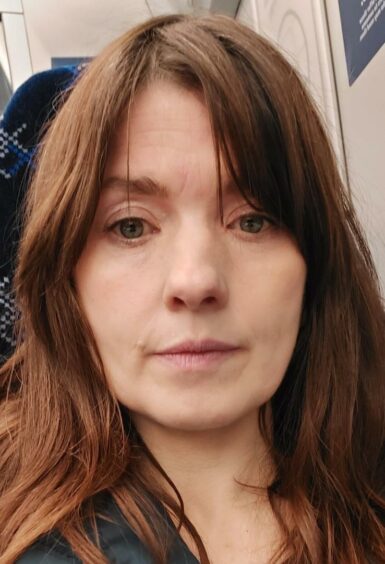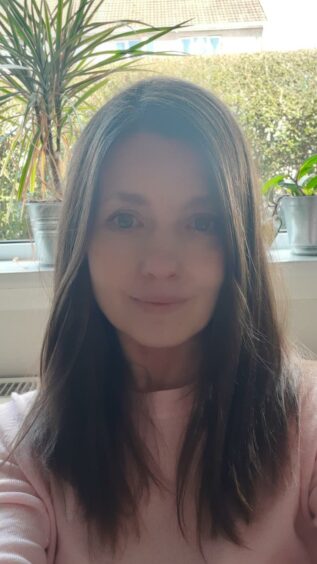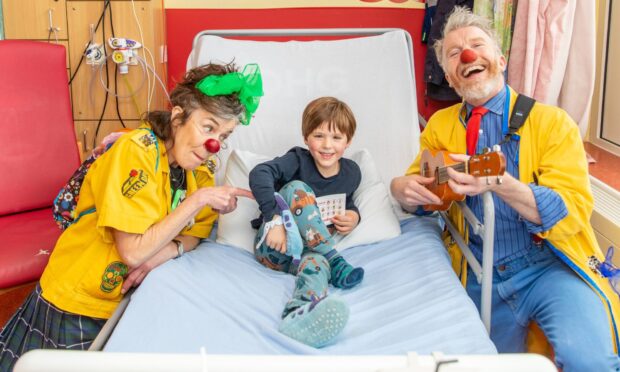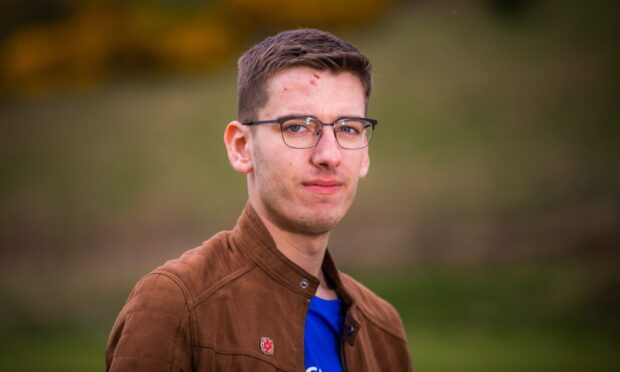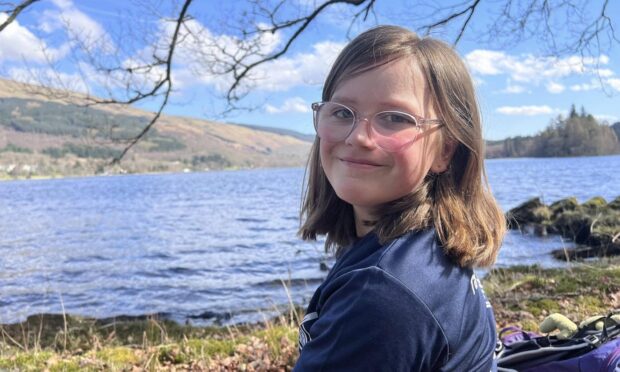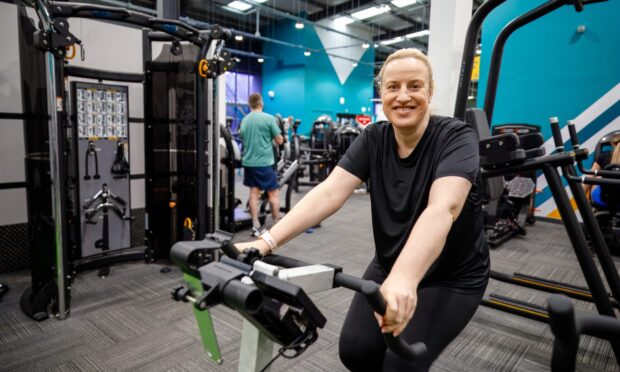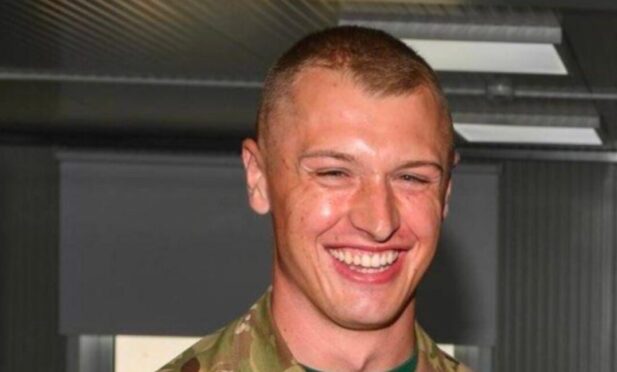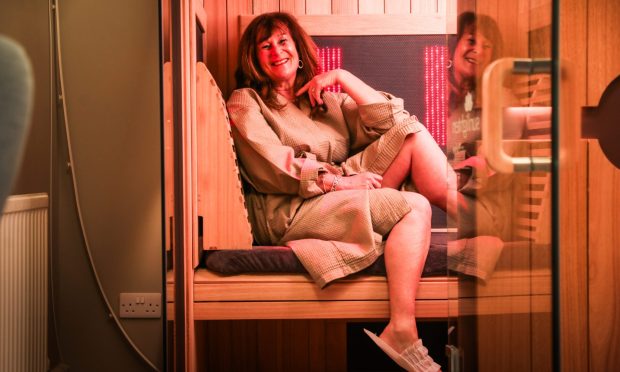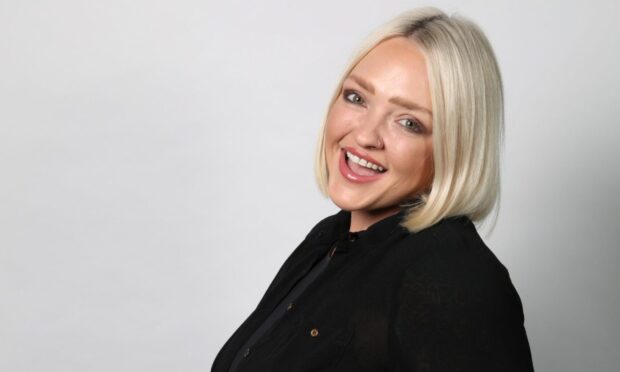To mark Eating Disorder Awareness Week starting today, two local women share their stories, in the hope they encourage others to reach out for support.
Here, the women tell us:
- How Grace’s condition impacted her social life, and relationships with family
- How Jane’s eating disorder was triggered by eczema – and how she thought it meant she’d never have children
- The ways their illnesses controlled their lives and how, with the right support, they’re overcoming their individual battles
Grace’s story
Grace Liddiard’s anorexia was triggered after a sexual assault and acquiring a head injury in a car accident. She was just 15 when her illness began.
Grace, from Errol in Perthshire, remembers: “I dealt with everything that happened to me, through anorexia.
“It went on for about six years and I didn’t seek help. I tried to deal with it myself and in doing that I became bulimic.
“It was very isolating, especially when I was a teenager. I just felt very ashamed of it. I thought if I told someone, they’d wonder why I couldn’t just snap out of it.
“There was a lot of shame, a lot of isolation and a lot of self-hatred really.”
‘I completely shut myself off’
Not only did her eating disorder severely impact her physical and mental health, it had a knock on effect on all aspects of Grace’s life.
The 31-year-old explains: “I missed a lot of school. The biggest impact was I felt I couldn’t socialise, because usually socialising involves food.
“I completely shut myself off and felt very guilty about not being ‘normal’.
“I didn’t share a lot with my parents and that put a strain on our relationship for a while because they could see I wasn’t happy, but I really pushed them away.
#EDAW2022 is next week and we need you!
Eating disorders are #WorthMoreThan2Hours 💕 pic.twitter.com/FCItEG2jpw
— Beat (@beatED) February 25, 2022
“It felt like I needed to deal with it by myself because if I couldn’t handle this, I couldn’t handle any of the other problems that came my way later in life.”
In September last year, Grace finally felt ready to reach out for support.
She continues: “It got to the point where I’m in a stable, happy relationship, I have a puppy and a job I love, but I was coming home every day and finding it really hard to live with myself because of the huge ups and downs and the self-doubt.
“I said to my GP ‘everything in my life is perfect, but I’m really unhappy. There’s nothing else to blame it on now and it’s time I dealt with it.'”
‘I feel stronger’
Grace now receives cognitive behavioural therapy (CBT) and takes medication to help her mental health. Reaching out for support was the first step on the road to recovery.
She says: “I have a fantastic GP. She checked in with me every week for the first few months.
“My counsellor has changed my life. I’ve been able to talk to her about things I’ve never been able to speak about with anyone else.
“If you’d told me six months ago I’d find it easy to talk to a stranger, I wouldn’t have believed it.
“I’ve also started exercising which I haven’t done for a very long time. I do it as a way of experiencing my body in a positive way.
“Physically, I feel stronger and that’s really helped my mental health as well. Exercise really helps me switch off.
“For the first time ever I feel like there’s a possibility at some point in my life I won’t struggle with an eating disorder. There’s hope.”
Jane’s story
Like Grace, Jane Fraser’s eating disorder also began in her early teens.
Jane, 45, explains: “I developed really severe eczema around 11 years old and it turned out I was allergic to a lot of food.
“As a teenager it was quite difficult. I felt like the only thing I could do was stop eating. I felt that would help.
“It impacted my ability to feel hungry and I ended up at a very low weight.
“At 18 I realised things needed to change. I went on holiday with my parents and everyone thought I was about 11 because I was so small. My periods had stopped.
“Over the years I tried to teach myself to eat again and how to feel hungry. I really struggled with that until I was about 30.”
‘The smallest thing was too much for me’
Jane struggled with anorexia, before developing symptoms of bulimia too.
Her problems continued into adulthood, despite trying her best to function as “normally” as possible.
The mum-of-two continues: “I wasn’t able to maintain relationships. I tried multiple times but I found it incredibly stressful. They all ended because my mental health just couldn’t handle the pressure.
“I would walk up and down the house because I was so stressed and couldn’t really concentrate on anything.
“My house was a mess. There were times where I couldn’t handle opening letters or bills which got me into financial trouble. The smallest thing was too much for me.
“Everyone thought I was the life and soul of the party, but I was like a duck on the water – looking calm but below the surface you’re struggling.”
‘I never thought being fully recovered would be possible’
After years of struggling, Jane finally visited her GP for support and she was referred for counselling.
She’s now volunteer services manager at Fife-based charity, SupportED. The charity helps people struggling with eating disorders around Scotland through peer support and one-to-one befriending.
Many of the staff and volunteers have their own lived experience and use that to help others wishing to begin recovery.
Jane says: “The charity gives people a safe space to talk without judgement. If you have an eating disorder, there’s still such a terrible stigma around it.
Our support groups are up and running again for 2022!
We run groups for both people struggling or recovering from an eating disorder and for parents’ or carers of loved ones with an eating disorder.
Find out more through the link below 👇https://t.co/UdlgOWv5Dz
— Supported (@SupportEDScot) January 13, 2022
“But at SupportED, no one’s going to judge you because everyone’s either in the same place as you, or they’ve been there. You feel like part of a community.
“I never thought being fully recovered, having a “normal” life and experiencing the magic of having children would be possible.
“Just tell someone about what you’re going through. The biggest thing you can do is talk about it.
“Once you get that off your own shoulders, you feel so much lighter.”
